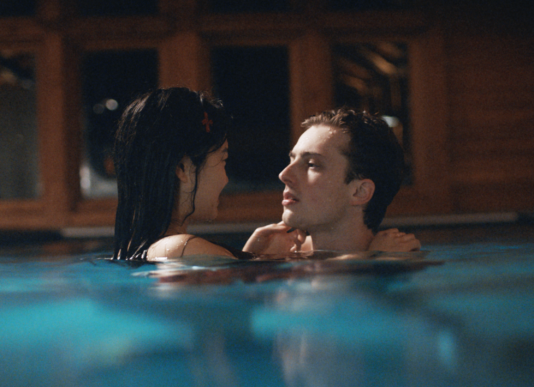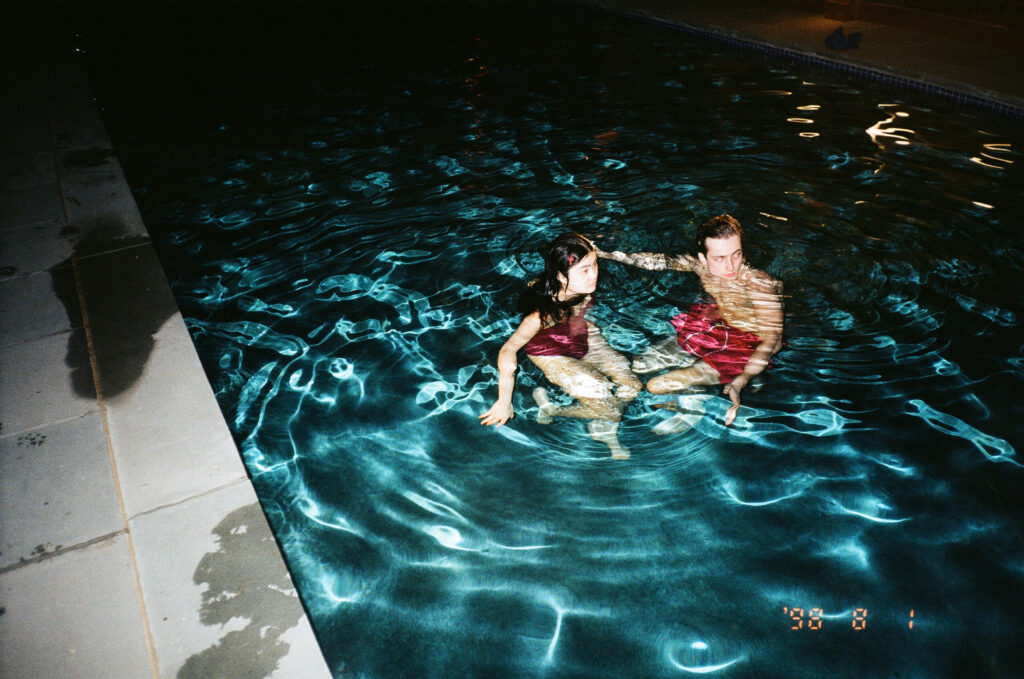Alumni Blog: Theo Le Sourd

Theo Le Sourd is one of four SVA recent graduates whose thesis films have been selected to screen at the First Look Festival. Here, Theo writes about how he was able to shape his film during his editing process.
When I wrote my thesis film, Hold Your Breath, I would have never predicted all the challenges I would face – even after thinking it was finished. Hold Your Breath is the story of what happens when four friends (two girls and two boys) jump into a swimming pool, and unspoken expectations rise up to the surface. When I wrote, directed, and even edited the short I initially told the story from the male protagonist’s point of view, but it didn’t feel right. It took me a while to realize that I had been telling the wrong side of the story, so one year after my graduation I decided to cut the film again.
I have always been fascinated by how actions are intended versus how they are perceived. As an example, I can touch your hand and intend to be a comforting gesture, but someone else can feel it as harassment. As a child, my mother always reminded me that what’s often important is not what someone says or doesn’t say, but how it makes you feel. This film was about this reminder that it’s often hard to define the right and wrong of a situation, but if it made you feel a certain way, it is already enough.

I believe that hearing people’s opinions help my writing. My vision of a mother can be defined by my own experiences with my mother, my friend’s and maybe some stories I heard of motherhood. When I combine my stories with the other people’s, I feel we all reach a greater truth. I explored different versions of the same scenes with improvisation from my actors, allowing them to explore multiple iterations of the same action, from very subtle, to aggressive. This made it so they were really able to fine-tune how far to go in certain moments and when to pull back so that the story never drifted too far to either end of the spectrum. I tried to experiment with different techniques and approaches to tell my stories in all my years at SVA.
In my first year at SVA I discovered the work of Italian filmmaker, Michelangelo Antonioni. I tried to emulate his style and write a short story of an argument of an estranged couple in their late 40s. I quickly realized that my story was so far removed from what I know and questioned why I decided to tell that story. In my second year, I fell in love with American John Cassavetes, and decided to explore improvisation with actors and friends, and writing the script on the go. As of today, it’s still one of my favorite experiences on set, but when I faced the hours and hours of footage in the editing room I swore to myself that next time I would be more conservative during production. I was convinced that a stricter and planned method was the closest to my voice. In my head, it was as if Hitchcock met Ozu. Everything should have been perfect, except everything went wrong. I didn’t realize that I hadn’t paid attention to the story I had written and that I was trying to force a visual language to a story that called for something freer. Nothing worked and I was never able to finish the film. When thesis year came, I was dreading presenting my screenplay. After three years, I still didn’t know what I wanted to tell. The only thing I knew was what I didn’t want to do.
“Success leads you to repetition and failures push you to try new horizons.” I always remembered this little proverb a teacher told me after I had complained about a cut I couldn’t finish. For my thesis film, I decided that I would explore something more personal and subtle. It was a story that I never dared to talk about because I didn’t think it so relevant at the time. I used to promise that I would never recut one of my films once it was completed. Hold Your Breath was the first film that I edited again, and taking that step back and maturing on the subject matter allowed me to bring the story to a clearer and deeper level.
When I started SVA, I always believed that my thesis film should be my best story and have the strongest direction of all my films; it’s only when I finished my thesis it that I realized that the true value in this journey was the lessons I carried with me after college. At the end of the day, there are no rules, and it takes more courage to explore the path that no one took before.